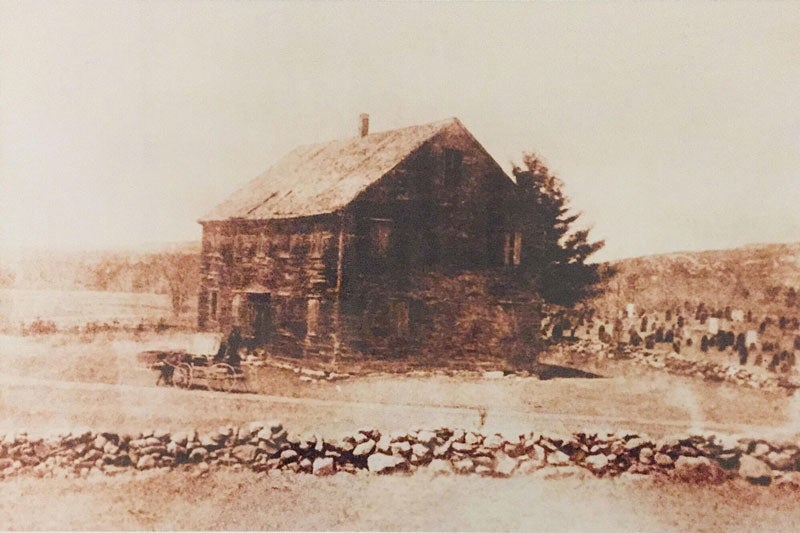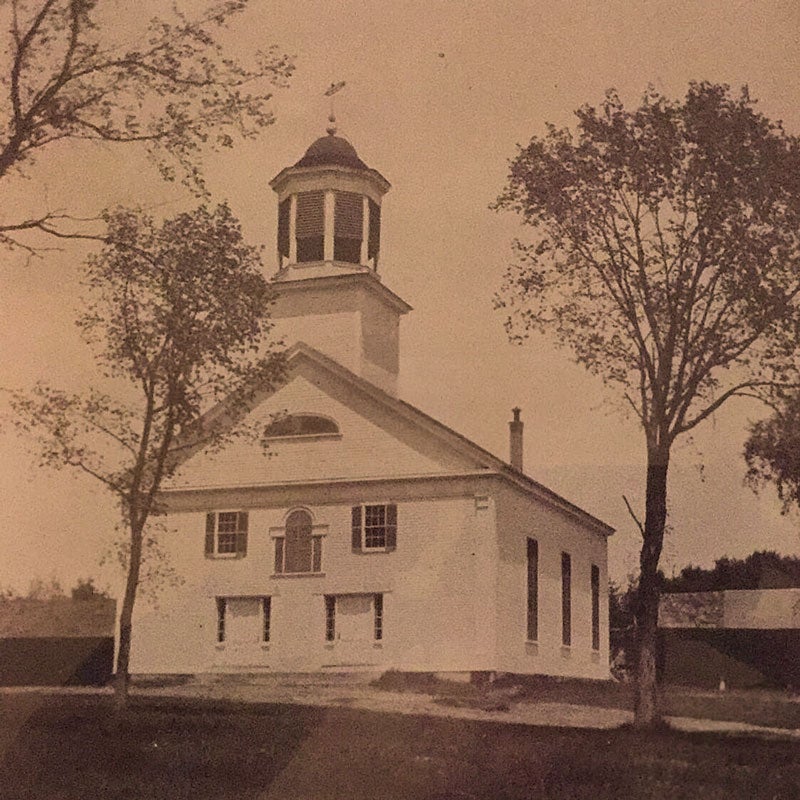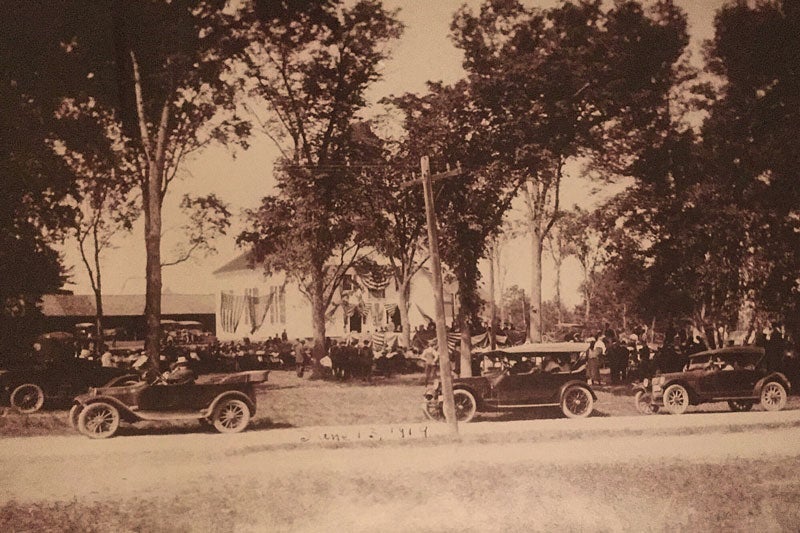History of the First Church of Merrimack, NH

A summary of the history of the First Church of Merrimack, New Hampshire, Established 1771
The Early Roots
1734-1771
Early in our history, Merrimack and Litchfield were one town divided by the Merrimack River. The Christians of Merrimack used the ferry to be part of the Church in Litchfield. After the two communities became two towns, Merrimack eventually built a church building on what is now Meetinghouse Road. In 1837 the Church gave up its ownership of that building to the town itself and built our present building.
By 1746, the two towns became separate entities. For ten years, members gathered to worship in local homes, with nearby ministers coming to conduct services. In 1756, the people of Merrimack built their meetinghouse.
The church was formally established and secured its first minister in 1771 as the First Congregational Church of Merrimack. The minister was a graduate of Harvard Divinity School, a young man named Jacob Burnap. Ordained as an orthodox reformed congregationalist, Jacob became well known throughout New Hampshire as a gifted preacher and public orator. He served the church for fifty years.

A Troubled Beginning
1837-1916
In the decades after Dr. Burnap’s death, the First Church of Merrimack had several different pastors. In 1837, the congregation gave the town rights to the old meetinghouse and built a new church.
Throughout the 1800s, the church continued largely as a Trinitarian, Evangelical, Reformed congregation. During the early 20th century, the church experienced varying ministerial and doctrinal conflicts, particularly involving the clear expression of the gospel.
In 1916, the spiritual condition of the church had deteriorated somewhat. A revision of the bylaws and doctrinal statement weakened both the Reformed and Evangelical natures of the document.
Finding Reform
1965-1980
In 1965, the congregation called in Reverend Francis Huber. His was a troubled ministry, and he found great opposition in his preaching of the Bible as God’s true Word. The townspeople were upset by his old-fashioned gospel, and they met to vote on a motion that encouraged doctrines that presented a weak interpretation of the gospel.
In 1967, the Reverend Bruce Gordon came to the church. He was a minister in the conservative Presbyterian Church in America and was eminently biblical in his own beliefs and ministry. Pastor Gordon was committed to the Westminster Standards and to the historic Reformed faith.
During his ministry, some members left, disgusted by such a serious commitment to the Bible over the church’s liberal traditions. Though the church lost members, it became clear that a revival was taking place. Over the years, many of the congregation who had strayed or believed in false doctrines quickly became converted.

Here and Now
1988-Present Day
Pastor Gordon served faithfully for thirteen years, and his career ended due to chronic fatigue in 1980. In 1988, Allen Tomlinson was called to the First Congregational Church of Merrimack. The leaders expressed the hope that Pastor Tomlinson would "pick up the ministry where Bruce had left off".
Pastor Gordon's mission was to evangelize, as well as to edify the converted. Pastor Tomlinson's mission was the same, with the additional responsibility of helping the church remain solidified in the biblical and Reformed faith. Pastor Tomlinson was helped in his ministry by two Assistant Pastors, Dr. Steven Wilfert and Rev. Stephen Michaud. To this day, Pastor Gordon and his family remain a continual source of encouragement to both the ongoing ministry and the congregation at large.
On December 12, 2014, the Orthodox Presbyterian Church Presbytery of New York and New England formally received the congregation. The church had voted to seek union with the Orthodox Presbyterian Church. At this time our church name changed from First Congregational Church of Merrimack to First Church of Merrimack. This was a truly historic event for the First Church of Merrimack!
Looking Back
At that time, the congregation had a history of 243 years. By uniting with the Orthodox Presbyterian Church, we made a more formal commitment to the biblical Gospel and the Reformed Faith, putting ourselves under mutual accountability with the other churches in the Presbytery.
We believe that this union will be used of God to keep us from ever departing from, or compromising, the doctrine of His Word. May we be used of God to be a source of encouragement to our sister Reformed Churches, until our Lord Jesus Christ comes again in glory. To God’s grace be all the glory. Amen.
